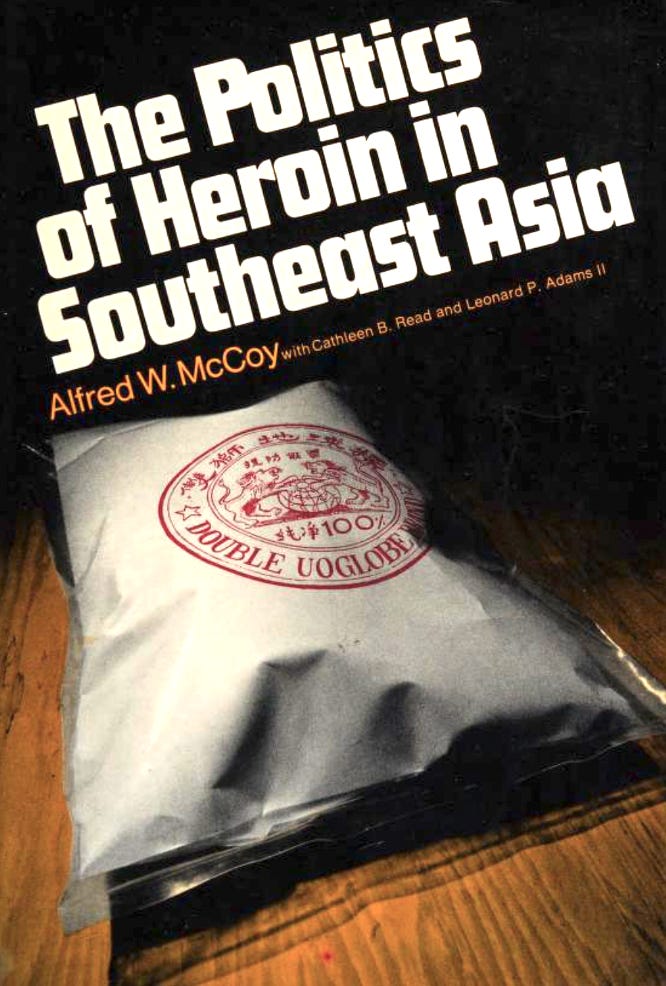Operation X: A Prototype for Modern Drug Markets
The French government maintained covert control of Vietnam's opium trade--until it was handed off to the US
The following is an excerpt from p. 73-74 of Chapter 1, “Precious Crystals: What Salt Teaches Us About Drugs” from my book, Drugism (2022):
Two years after the Marihuana Tax Act passed in the US, World War II broke out in Europe. The war and its aftermath fundamentally reshaped the global order. During the war and in the years immediately afterward, everything from political regimes to supply chains were drastically altered throughout much of the world.
One of many changes was that the French began to lose power in Southeast Asia. We mentioned above that they had instituted monopolies on salt, opium, and wine in their colonial occupation of Vietnam. In the mid-20th century, as prohibitive drug laws grew in popularity throughout the world (due in large part to treaties and trade agreements shared by numerous nations), the French had to officially terminate their colonial opium monopoly.
But while the French publicly insisted that they ended the trade after World War II, they did not actually stop it. Instead, the opium business was transferred to the control of a French intelligence agency, the Service de Documentation Extérieure et du Contre-Espionage, or SDECE. For several years, the SDECE collaborated with the Hmong (one of many indigenous populations who live in what is known as the Golden Triangle) to produce, process, and distribute massive quantities of opium. The business, no longer a public monopoly but instead a covert intelligence project, was dubbed Operation X according to historian Alfred McCoy.[xx]
While the money made from Operation X was crucial to the larger project of French occupation, ultimately they were unable to maintain control in the region. By the mid-1950s the French retreated from Vietnam. But it was not the end of western imperialism in that country.
Fresh on the heels of the French came the US, who launched the Vietnam War before the French had even completely left the country. And while this war, like many others, was ostensibly waged to fight communism, it was also part of a broader effort to secure control of the world’s oil reserves.[xxi]
The system crafted by the French through Operation X was replicated by US intelligence forces, particularly the CIA. The agency even worked with the same Hmong tribes that had produced opium for the French.[xxii] However, while the French opium racket had primarily served Vietnamese clientele in the form of smokable opium and only occasionally exported their product to syndicates based in Hong Kong or Marseilles, under US control the trade grew enormously, and heroin came to dominate over opium as the region’s premier product.[xxiii]
The basic pattern established by Operation X and expanded upon by the CIA created a template for what has since become a worldwide phenomenon: wars fought for control of oil reserves, financed with illegal drug sales. And both the oil and the drugs as well as the way the drugs are used as sources of revenue all owe their existence to the legacy of salt.







The Politics of Heroin is certainly an eye opening book, have no idea how it was ever allowed to be published(though if I remember correctly McCoy had to run it by various government agencies before it was published). Every empire has always depended upon the control of the vice trade in order to function, the American empire is certainly no different.